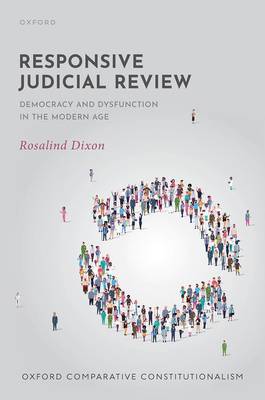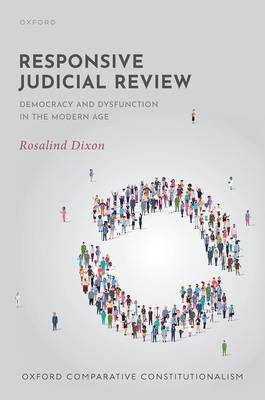
- Retrait gratuit dans votre magasin Club
- 7.000.000 titres dans notre catalogue
- Payer en toute sécurité
- Toujours un magasin près de chez vous
- Retrait gratuit dans votre magasin Club
- 7.000.0000 titres dans notre catalogue
- Payer en toute sécurité
- Toujours un magasin près de chez vous
201,45 €
+ 402 points
Description
Democratic dysfunction can arise in both 'at risk' and well-functioning constitutional systems. It can threaten a system's responsiveness to both minority rights claims and majoritarian constitutional understandings. Responsive Judicial Review aims to counter this dysfunction using examples from both the global north and global south, including leading constitutional courts in the US, UK, Canada, India, South Africa, and Colombia, as well as select aspects of the constitutional jurisprudence of courts in Australia, Fiji, Hong Kong, and Korea. In this book, Dixon argues that courts should adopt a sufficiently 'dialogic' approach to countering relevant democratic blockages and look for ways to increase the actual and perceived legitimacy of their decisions--through careful choices about their framing, and the timing and selection of cases. By orienting judicial choices about constitutional construction toward promoting democratic responsiveness, or toward countering forms of democratic monopoly, blind spots, and burdens of inertia, judicial review helps safeguard a constitutional system's responsiveness to democratic majority understandings. The idea of 'responsive' judicial review encourages courts to engage with their own distinct institutional position, and potential limits on their own capacity and legitimacy. Dixon further explores the ways that this translates into the embracing of a 'weakened' approach to judicial finality, compared to the traditional US-model of judicial supremacy, as well as a nuanced approach to the making of judicial implications, a 'calibrated' approach to judicial scrutiny or judgments about proportionality, and an embrace of 'weak - strong' rather than wholly weak or strong judicial remedies. Not all courts will be equally well-placed to engage in review of this kind, or successful at doing so. For responsive judicial review to succeed, it must be sensitive to context-specific limitations of this kind. Nevertheless, the idea of responsive judicial review is explicitly normative and aspirational: it aims to provide a blueprint for how courts should think about the practice of judicial review as they strive to promote and protect democratic constitutional values.
Spécifications
Parties prenantes
- Auteur(s) :
- Editeur:
Contenu
- Nombre de pages :
- 320
- Langue:
- Anglais
- Collection :
Caractéristiques
- EAN:
- 9780192865779
- Date de parution :
- 16-05-23
- Format:
- Livre relié
- Format numérique:
- Genaaid
- Dimensions :
- 163 mm x 226 mm
- Poids :
- 635 g

Les avis
Nous publions uniquement les avis qui respectent les conditions requises. Consultez nos conditions pour les avis.






